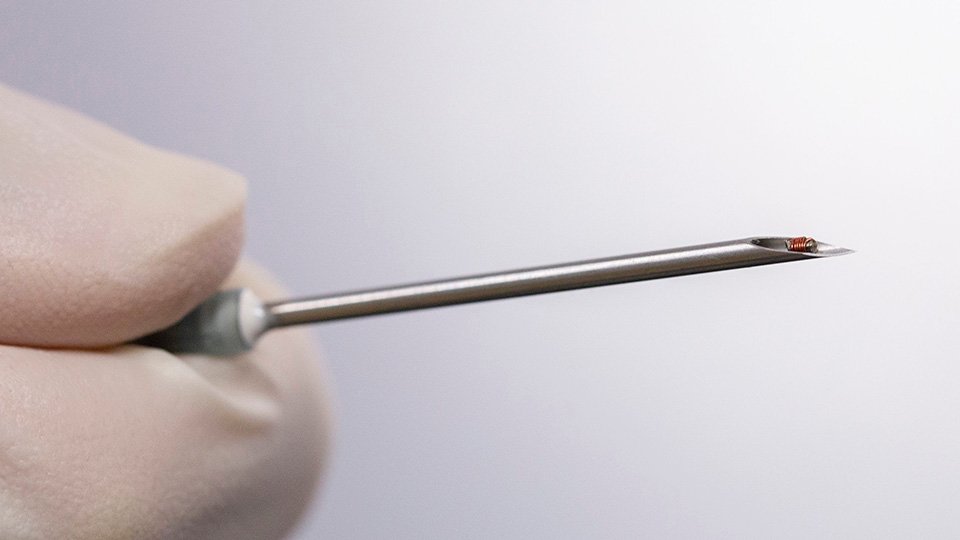
Tiny subcutaneous implants that can continuously measure a person’s blood glucose, heart rate and other physiological conditions are a Holy Grail of modern medicine. A team of researchers at the National University of Singapore (NUS) has recently made a quantum leap into turning this dream closer to reality. They developed a new wireless reader that is so sensitive to minute changes in a sensor’s readings that it enables the creation of sub-millimetre microsensors, tiny enough to be injected under the skin.
The team has developed a working prototype of the reader that can read a microsensor that is 0.9 millimetres in diameter while implanted underneath the skin using a syringe. In lab experiments, the reader was able to monitor the rate of breathing and heart rate by detecting subtle movements of the battery-free microsensor.
The researchers hope that this breakthrough will be a trailblazer for the future of minimally invasive health monitoring solutions where patients are immediately alerted whenever their physiological conditions such as heart rate and blood glucose cross a critical threshold.
The next step is to develop a suite of passive (battery-free) microsensors that can monitor various physiological parameters such as glucose, bioelectrical activity and blood chemistry.




